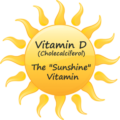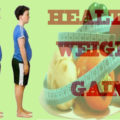Energy drink is a very complicated term because different people associate differently to the energy drink. Some relate fruit juices, tang and gluconD and as energy drinks whereas even the caffienated beverages like red bull, gatorade also considered as energy drinks. Also one more category of energy drinks which has come up is the range of nutrition and fitness products like proteinex, Ensure, Bourvita etc. Ofcourse energy drinks provides energy for that instance. But what needs to be checked is that the way in which the energy is generated in the body is healthy for the body. Energy drink and health!
I will first talk about the most simple and traditional energy drinks i.e our juices (natural as well as packaged). The simplest for of energy required by our body is glucose. Fruit juices, tang and glucon-d are very commonly used beverages to supply body with instant glucose to the body. When a person is low in energy these are the things offered to them. After drinking these drinks the person feels quite fresh and energetic. If these juices provide you with instant energy then what is the requirement for the other caffienated energy drinks.

Energy Drinks.. Yes or No??
There is a type of energy drinks which contains stimulant drug, chiefly caffeine along with sugar, guarana, gingseng, taurine, B-Vitamins. Sadly these products are marketed and said to give mental and physical stimulation. The recommended allowance for caffiene per day is 400mg which will come up to 3-4 cups of coffee in a day. The American Academy of Pediatrics recommends that adolescents get no more than 100 milligrams of caffeine a day. Younger children shouldn’t drink caffeinated beverages on a regular basis.The caffine content in an energy drink can vary from 75 milligrams to 200 milligrams per serving. This compares to 34 milligrams in Coke and 55 milligrams in Mountain Dew.
How Much Caffeine are you having?
| Beverage/Food |
Serving Size |
Average Amt. (mg) |
Range (mg) |
| Brewed Coffee |
240 ml |
85 |
65-120 |
| Instant Coffee |
240 ml |
75 |
60-85 |
| Decaf, Brewed |
240 ml |
3 |
2-4 |
| Decaf, Instant |
240 ml |
3 |
1-4 |
| Espresso |
60ml |
80 |
60-100 |
| Cappuchino/Latte |
60ml |
80 |
60-100 |
| Moccachino |
60ml |
90 |
70-110 |
| Black Tea |
60ml |
40 |
30-60 |
| Decaf Black Tea |
240 ml |
4 |
<5 |
| Green Tea |
240 ml |
40 |
30-50 |
| Iced tea mix, unsweetened |
240 ml |
13 | – |
| Iced tea, ready to drink |
240 ml |
30 | – |
| Cocoa beverage |
150 ml |
5 |
2-20 |
| Chocolate Milk |
240 ml |
5 |
2-7 |
| Dark chocolate, semi-sweet |
30 ml |
20 |
5-35 |
There are few energy drinks which claims to be caffeine free. In that case gingseng and guarana are added to energy drinks. Gingsen enchances the caffiene content of the drink and gurana which is equivalent to caffeine. The health hazard of these energy drinks are seen if the consumption is more than two bottles in a day. These drinks get worse when combined with alcohol like vodka. Copmbination of alcohol and energy drink is more dangerous than alchol alone. Regular intake of energy drinks induce agitation, anxiety, irritability and insomnia .
Excessive consumption may also lead to mild to moderate Euphoria. It is a mental and emotional condition in which the individual experiences intense feelings of wellbeing, elation, happiness, excitement and joy. Energy drinks stimulates the body to the rate that it can tremendously boost you heart rate and blood pressure, dehydrates your body and prevent sleep. It is not advisable to use energy drinks while exercising as caffeine has diuretic property it can completely dehydrate the exercising person. Energy drinks are strictly not recommended for heart patients without approval from their cardiologist.
Energy Drinks has long term ill effects. So consider more healthier and better option to keep your energy levels optimum. Eat healthy nutritious food, sleep well, exercise or meditate and drink plenty of non caffeinated fluids throughout the day. Sometimes fatigue is a sign of an underlying medical condition, such as hypothyroidism or anemia so rule out these complications. Teenagers, pregnant women and women who are breast-feeding may want to avoid or especially limit consumption of these beverages.
Risk against energy drinks:
The researchers state that the health risks associated with energy drink consumption are primarily related to their caffeine content.Potential risks associated with energy drink consumption include:
- Caffeine overdose can lead to a number of symptoms, including palpitations, high blood pressure, nausea and vomiting, convulsions and, in some cases, even death
- Stillbirthsin pregnant women, late miscarriages, low birthweight babies
- Type 2 diabetes– as high consumption of caffeine reduces insulin sensitivity
- Sensation-seeking behaviour
- Neurological and cardiovascular system effects in children and adolescents
- Poor dental health
- Use and dependence on other harmful substances.
Benefits of Energy Drinks:
With all the side effects of energy drinks, it also has a benefit. Energy drinks increases the BMR. After consuming 200 to 350 milligrams of caffeine, healthy adult men have an average of 4 to 11 percent increase in metabolic rate, and women have an even higher increase of 10 to 23 percent. This effect of caffeine has become a weight loss gimmick, but may not be effective since many highly caffeinated beverages are also packed with extra calories. Enrygy drinks in moderate sensible amounts semms to be safe. But if the intake increases, so does the undesired ill effects.
What are the differences between an energy drink and a sports drink?
- Main aim of sports drinks isto provide re-hydration during or after athletic activity. While contents vary, most sports drinks contain a 6-8% carbohydrate solution and a mixture of electrolytes. The carbohydrate and electrolyte concentrations are formulated to allow maximal absorption of the fluid by the gastrointestinal tract.
- Energy drinks do not re-hydrate athletes during activity and should not be used. Energy drinks contain a higher concentration of carbohydrate (usually 9-10%), and thus a larger number of calories than sports drinks. They also contain high amounts of caffeine and, in some cases, other nutritional supplements.
Remember as I always say “ Moderation is the key”. Do not over do anything nor good neither bad. Enjoy a bit of everything but a bit shouldn’t be always.
Buy Following Energy Drink now:
- Click here to buy Bournvita now
- Click here to buy Red Bull now
- Click here to buy Tang now
- Click here to buy GluconD now
RD Neha Kava
Latest posts by RD Neha Kava (see all)
- 3 Supplements To Try That Will Improve Your Health - March 15, 2025
- 3 Tips to Adding Supplements to Your Diet - March 14, 2025
- Beginners Running Tips – How to start getting in shape with the most efficient exercise out there - March 13, 2025



